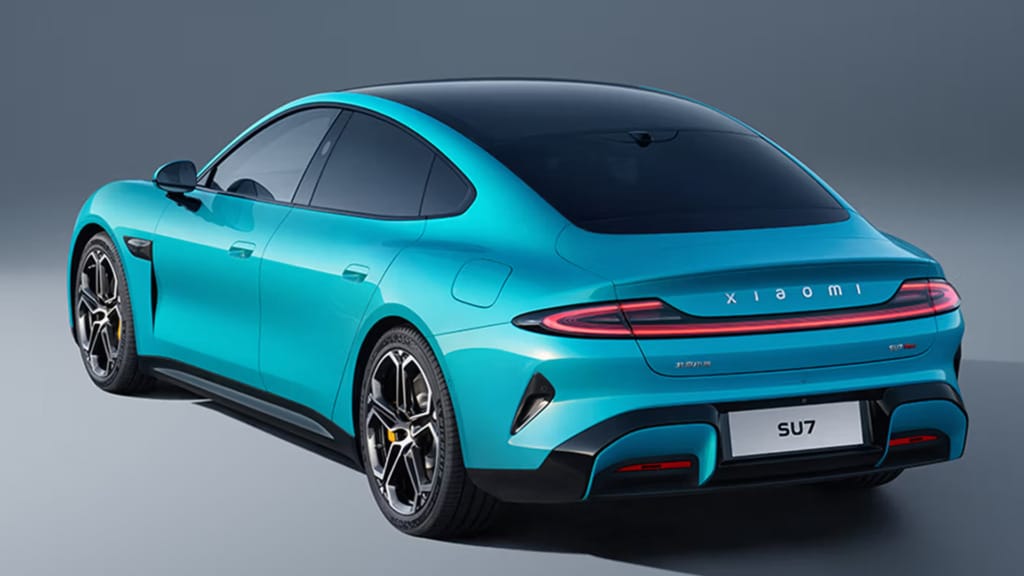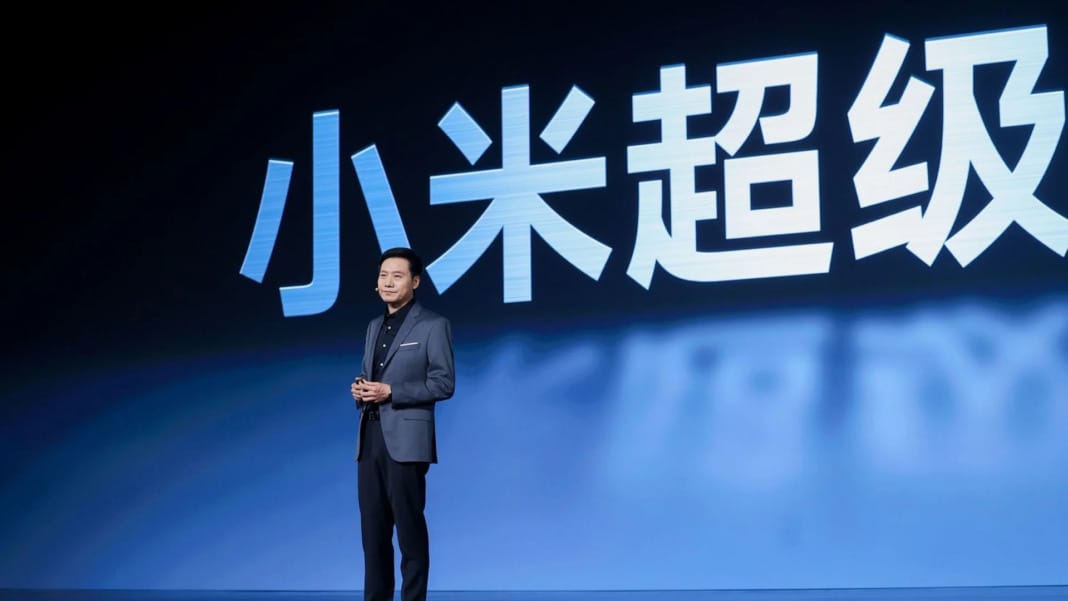In a bold move into the electric vehicle (EV) sector, Xiaomi, renowned for its smartphones and technology products, has unveiled the SU7. This launch signals Xiaomi’s entry into the highly competitive Chinese market, aiming to take on major domestic and international players, including Tesla and Porsche.
The SU7: Xiaomi’s entry into the EV market
Presented on a recent Thursday, the SU7 stands out with its sleek design and high-performance capabilities. It comes in two variants: the single-motor SU7 and the more robust dual-motor SU7 Max. The vehicle is powered by Xiaomi’s advanced HyperEngine electric motor, which can achieve up to 21,000 revolutions per minute (rpm). This performance puts it in close competition with Tesla’s Model S Plaid and Porsche’s Taycan Turbo, which have 20,000rpm and 16,000rpm motors, respectively. The SU7 also features batteries from China’s Contemporary Amperex Technology (CATL), promising a driving range of up to 800 kilometres.

While Xiaomi revealed these exciting features, the company has not yet provided specific details on the SU7’s pricing or its exact launch date. Lei Jun, Xiaomi’s billionaire founder and CEO, expressed at the launch event in Beijing that the company aims to produce a vehicle on par with those from Porsche and Tesla, describing the SU7 as a dream car for the new era of the automobile industry. Lei also shared Xiaomi’s ambition to rank among the top five global carmakers in the next 15 to 20 years.
The crowded Chinese EV sector
Xiaomi is entering a crowded and competitive sector. China is the world’s largest automotive and EV market, with battery-powered vehicle sales comprising nearly 60 per cent of the global total. However, the substantial costs associated with research and development, marketing, and customer incentives have made profitability challenging for many manufacturers.
This competitive environment was underscored by the recent announcement from Aito, an EV brand backed by smartphone competitor Huawei Technologies. It reported 54,000 orders for its flagship sport-utility vehicle, the M9, since its presale began on September 25.
Xiaomi’s future plans and advanced features
Xiaomi’s SU7 boasts a top speed of 265 kilometres per hour and can accelerate from 0 to 100kph in just 2.78 seconds. Lei Jun revealed that by 2025, Xiaomi plans to incorporate motors with 27,200rpm in its vehicles and is currently testing motors with capabilities of up to 35,000rpm.
The company also showcased an autonomous driving system with lidar sensors and an artificial intelligence language model, enabling features like self-parking and assistance during rush-hour driving. Xiaomi has invested 4.7 billion yuan (about US$658 million) in this technology and plans extensive driving tests in 100 cities across China by the end of 2024.
All Xiaomi EVs will be equipped with the HyperOS system, combining a custom Android system with Xiaomi’s proprietary Internet of Things platform, Vela. This integration promises enhanced connectivity between Xiaomi vehicles and smartphones.
Xiaomi has announced that the SU7 will undergo additional testing before it is finally released.





